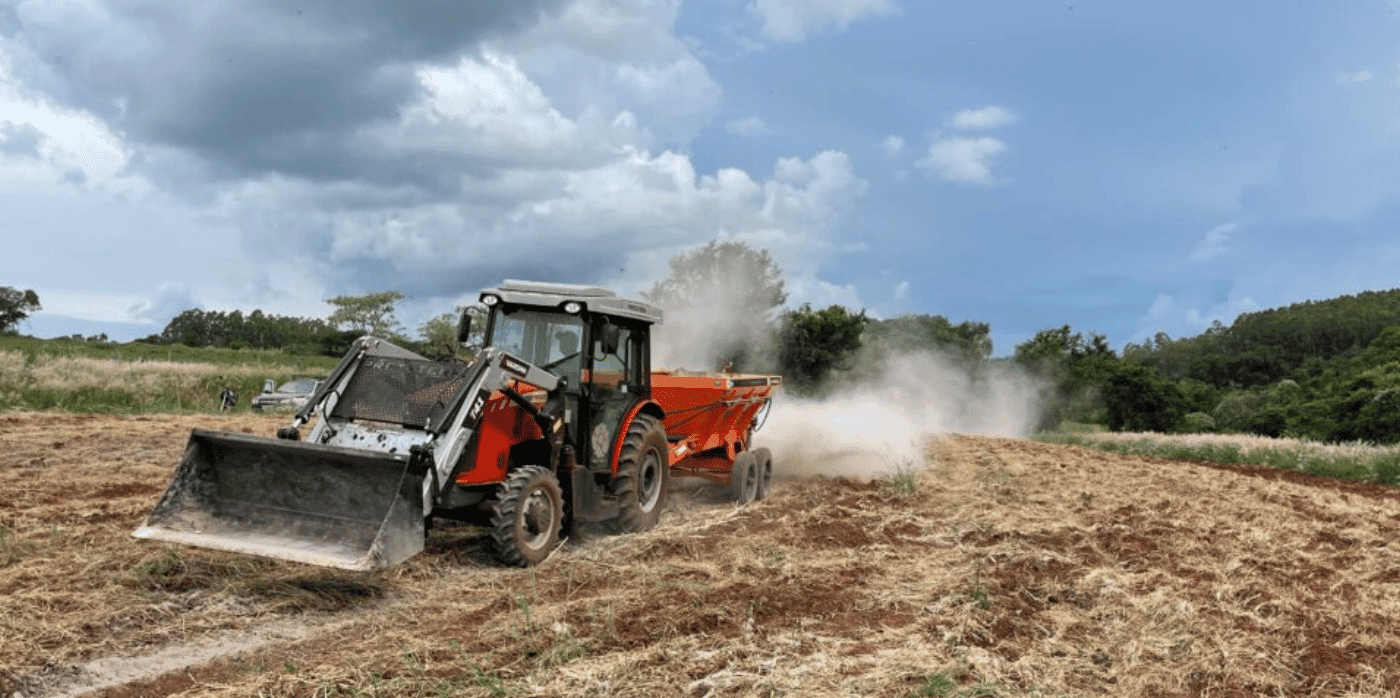
Spotted: Wanting to help make the long-standing agricultural practice of remineralising soil with rock powder even more effective, a team of researchers formed InPlanet. Focused exclusively on accelerating the natural carbon removal that occurs when carbon dioxide reacts with silicate rocks and water, the process cleans the air and improves crop outputs.
Working with mines across Brazil, the company is scaling a sustainable farming practice that has been practiced in the country for generations. The high temperatures and consistent rainfall of the tropics significantly affect the quality of farmed soil. But, spreading ground rock across the fields improves soil biodiversity, and particularly its mineral content, as many commercial fertilisers kill off helpful growth as well as weeds.
Once the crushed rock is spread, the CO2 will remain inground for thousands of years, whether in the field itself or as sediment in the oceans if it runs off. Farmers can save money they would otherwise spend on chemical fertilisers, and as well as enriching the soil, the rock captures high volumes of CO2 that would otherwise remain in the atmosphere.
The country has set itself a goal of certifying up to 1,000 mines by 2050 as suppliers of the rock for agricultural use. InPlanet is using its research and development (R&D) capabilities to help farmers economically justify the switch from pesticides and other synthetics to enhanced rock weathering (ERW) field management. Having recently closed an oversubscribed €1.2 million pre-seed round of funding, the company is planning to expand its team and monitoring capacity.
From growing minerals underground that lock away captured CO2 to using sequestered carbon for industrial processes, Springwise has spotted a range of ways that captured carbon dioxide is being used.
Written By: Keely Khoury

